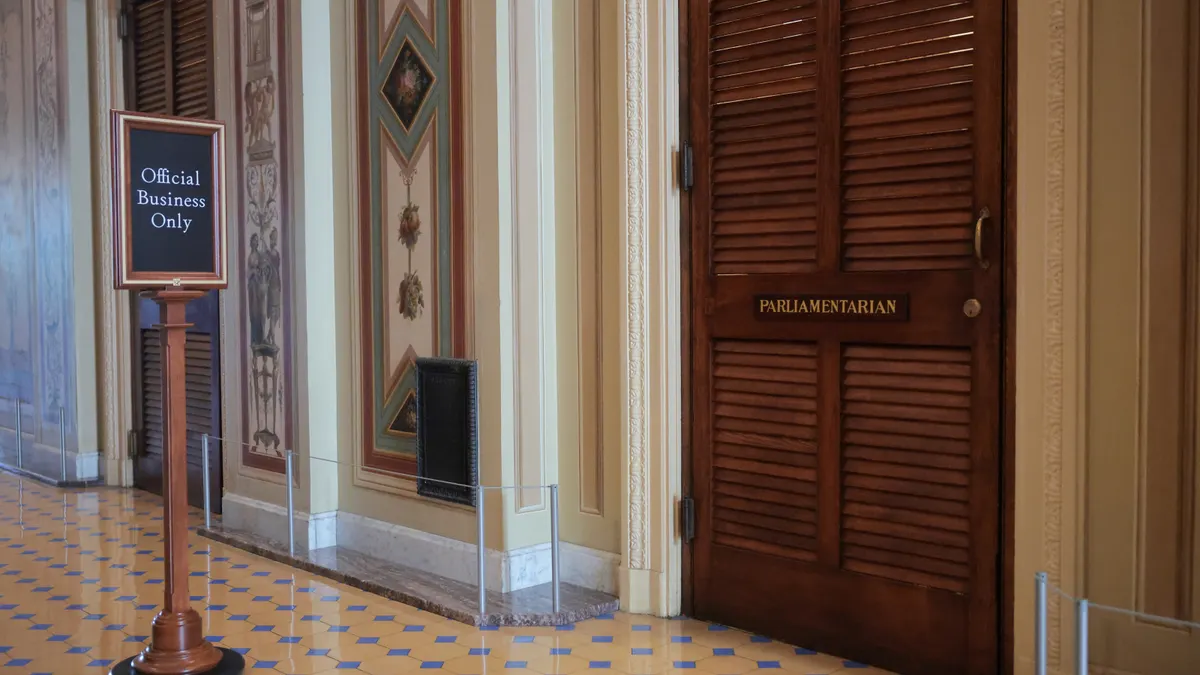Dive Brief:
- The Senate Parliamentarian ruled that the proposed moratorium on state AI regulation included in the “One Big, Beautiful Bill” is not subject to a 60-vote threshold as established by the Byrd rule, according to a Saturday press release.
- After clearing the procedural hurdle in the Senate, the proposed freeze could pass with a simple majority. The proposal still faces other roadblocks, including pushback on both sides of the political aisle.
- The 10-year moratorium narrowly passed the House of Representatives in a 215-214 May vote. Earlier this month, the U.S. Senate Committee on Commerce, Science and Transportation revised the provision to tie the enforcement freeze to federal funding.
Dive Insight:
The proposed state and local AI regulation moratorium is emblematic of the Trump administration’s approach to governing the technology. CIOs and their enterprises are keeping a close eye on the evolving regulatory landscape.
The administration has begun to shape oversight ahead of releasing an AI action plan, which is expected next month. Secretary of Commerce Howard Lutnick laid out plans to rebrand the nation’s AI safety institute, dropping “safety” from its new moniker earlier this month.
A deregulation approach to AI governance has dominated the White House playbook in the first half of the year. The administration has promoted the strategy abroad and to technology leaders at home. White House AI and Crypto Czar David Sacks criticized state-level AI bills and warned of “AI doomerism” earlier this month during a fireside chat at the AWS Summit.
The proposed moratorium has caused a stir among lawmakers and industry experts.
“While the moratorium aims to create uniformity, a sweeping pause on state-level AI legislation risks stalling the innovation and ethical progress we should be accelerating,” Asha Palmer, Skillsoft SVP of compliance solutions, said in an email. “The Senate Parliamentarian’s decision to allow the AI moratorium provision to advance through reconciliation is a pivotal moment — but not necessarily a reassuring one.”
In the absence of enforceable regulation, Palmer recommended enterprises lead with internal governance, transparency and accountability.
















